I imagine New Zealand’s going to keep calm over this, will send sheep
I imagine New Zealand’s going to keep calm over this, will send sheep.
Saudi Arabia ‘jails man for telling the truth’ about work conditions :
ind.pn/22AZRlP
Time to go John
” …a sense in which Andrew Little is responsible is that he has been part of a campaign of deliberate lies… It is very sad that an opposition party would [behave] so dishonestly…”
Given John Key’s entire tenure as prime minister is built on lies, this from Matthew Hooton over at The Dimpost’s comment section is somewhat ironic, and insulting.
In October 2008 as the then opposition leader, Key maintained his 1991 statement to the Serious Fraud Office investigation into failed corporate high-flier Equiticorp and it’s fraudulent H-Fee transactions with Australian corporate giant Elders IXL, was accurate. But his well documented relationship with infamous New York based Bankers Trust currency raider Andrew Krieger says otherwise.
We know Key worked with Krieger, this was confirmed in great detail by hi Bankers Trust boss Gavin Walker* in February 2008. Telling media Key knew everything Krieger was executing across the Auckland Bankers Trust’s branch’s trading desk; indeed looking after Krieger was part of Key’s job description. Key himself has said he can still recall his first phone call with the trader, saying Krieger asked him about New Zealand’s GDP and it’s monetary supply.
We can also be sure Key was at his previous firm Elders Merchant Finance on 17 August 1987, as he filmed for Close Up’s “Big Dealers” episode on that day. What we know of Krieger is that he resigned from Bankers Trust on 23 February 1988. His resignation is well documented, having been reported in the New York Times, the Wall Street Journal, and later in Krieger’s own book, ‘The Money Bazaar’.
To have worked with Krieger, which there is no doubt, Key needed to have left Elders Merchant Finance to start with Bankers Trust sometime after 17 August 1987 but before Krieger’s 23 February 1988 resignation date.
Therefore Key’s statement to the Equiticorp inquiry in which he told investigators he left Elders Merchant Finance for Bankers Trust on 31 August 1988 can only be a lie. His insistence to voters in October 2008 that his statement was entirely accurate can only be another one.
Lying to an SFO investigation carries a maximum $15,000 fine or twelve months jail, more for conspiring to mislead, and I think any investigation would find that’s exactly what Key (and his ex-Elders colleague Paul Richards**) did.
Time to go John.
_____
* Gavin Walker, current Chair, Board of Guardians of New Zealand Superfund
** Paul Richards, current head of Foreign Exchange Distribution, UBS, North America
Day 22 Remembering Christchurch
Still remembering
Can we stop with the lame post-protest conversations and opinionated think pieces please?
In her Herald on Sunday column this week Heather Du Plessis-Allan suggested some silly people came along to last Thursday’s anti-Trans-Pacific Partnership Agreement (TPPA) protests and ruined everything, and now the country will never want to talk about free trade ever again – because, well – bad protesters. I imagine a ‘good protester’ to Du Plessis-Allan is someone who quietly marches waving an inoffensive placard, in an inoffensive way, accompanied by an inoffensive chant, asking to have an inoffensive conversation, with some inoffensive people – someone, who even Mike Hosking’s so-called “regular New Zealanders” could give their inoffensive nod of approval too.
Guess what guys, the revolution was never meant to be inoffensive, nor something easily slotted in between a pedicure and picking the kids up at three. Protesting, by its nature, is an inconvenience. If it doesn’t make the viewer uncomfortable it is not doing its job. Also protesting, or the right to protest, is a democratic right in our country – we literally go to war in other countries to afford their peoples the same rights. Let that sink in for a minute. While the boys and girls of our Fourth Estate reduce serious issues to ‘silly protesters’ and ‘traffic inconveniences’ – we send men and women to potentially die in foreign lands to give or to restore to a foreign citizen, their right to protest and inconvenience their governments. The very same rights it would seem that some people here would rather we didn’t have.
I don’t want to watch, or read, or hear another talking head whine about protesting “riff-raff” and “rent-a-crowd”. I want to watch, read, and hear them instead discuss the issues being protested, for, or against. Let’s not forget some media personalities are paid very well to do this, so why are they still struggling with the fundamentals of our democracy and getting away with it? Let alone being paid for that struggle? If Hosking for example can’t figure it out, please someone dear god explain it to him, and please let that someone not be Toni Street. Every time we allow important conversations to be derailed by lowest common denominator sound bites churned out to even lower common denominator audiences, we do New Zealand a disservice. We do our kids a disservice.
Not just content with sticking the knife into ‘bad protesters’ for giving protesting a bad image and turning people off talking about the TPPA, Du Plessis-Allan claims their actions single-handedly sent “ordinary people” – which I can only assume is Du Plessis-Allan ‘speak’ for Hosking’s “regular New Zealanders” – into the moderate and welcoming arms of the TPPA proponents. Really? Do we have evidence of this? Or is this something Du Plessis-Allan made up because she had a 500 word limit to fulfil? If so-called “ordinary” New Zealanders don’t understand the TPPA as she alleges and a bunch of protesters can scare them off, then that’s not the fault of the protester, that’s her fault, she is the journalist after all.
What has she done the past eight years to elucidate the masses? She derides and ridicules protesters for their ignorance in the face of a knowledge vacuum, but lets her so-called “ordinary people” and Hosking’s “real New Zealanders” off the hook, despite their own very obvious ignorance due to the same information void. The TPPA came out of the last decade when the United States wished to join the four country Trans-Pacific Economic Partnership Agreement (TPSEP) – so it has literally been a thing since January 2008. Why are we so ignorant to this agreement eight years on? Why are people fearful of not just it but many of its clauses? Can our broadcasters really say they’ve done their very best to give people not just credible, but also the factual information they would need to have to take a well-rounded position on it? I don’t think so.
It seems a major goal in the TPPA debate for some time now has being to avoid pushing for answers on contentious provisions in the agreement from the negotiating Executive, and instead drill non-negotiating opposition parties on their stance. Demanding to know if they are anti-free trade for example, because they, inexplicably it seems to some media, dare to question parts of the agreement while supporting others. For some, it’s like the media are fighting the fire in the letterbox while behind them the house burns. No wonder people are scared and effectively screaming at their screens, and now screaming into our screens, at the journalistic equivalent of the horror movie victim not heeding our warnings to ‘look behind’ them. If people for, against and everything between, are still ignorant of this agreement this late in the game, some feeling anxious, desperate and fearful, then someone’s not doing their job – or someone else is doing their job too a little too well.
On Radio New Zealand last week, ex Labour Party politician and Speaker of the House, Margaret Wilson, now Professor of Law and Public Policy at University of Waikato said this of the protesters and their perceived ignorance,
“Why they’re bothering is that somehow or another people feel they have to express to their government their feelings about both [the] process [of the TPPA], and [the] content in many ways as well, because they haven’t had any other opportunity to do so. In New Zealand’s constitutional arrangement, [protest] is the way in which the people, the only way really, substantially, [that people can] communicate directly [with the Executive].”
Du Plessis-Allan though bless her, hopes middle New Zealand will stay strong in the face of inconvenient protests and inner city traffic jams, and no matter how tedious, carry on the apparently newly started, but nevertheless important TPPA conversation. It’s almost like Du Plessis-Allan has only just realised the importance of it, let alone known that some of us have being desperately screaming out for us to have this conversation for some time. See what I did there Heather?
“Those who make peaceful revolution impossible will make violent revolution inevitable.” – John F. Kennedy
Like it or not dear reader, the thousands of protesters who turned up last Thursday, and the many people who wish they could have, are not the people who need their actions questioned right now.
Viva la revolution.
“Someone send the gif over to John Oliver so we can get it over with..”
Love him or hate him, but National’s Economic Minister Steven Joyce seems to be taking the dildo attack by TPPA protester Josie Butler at Waitangi today, on the chin, literally:
“Someone send the gif over to John Oliver so we can get it over with..”
John Key talks free tertiary education
OD: “Finally on education, in your first State of the Nation speech you spoke about the opportunity you had for a good education. Kids today end up with an average student debt of $28,000 to get the same education as you did. Any plans to go back to tertiary education, free tertiary education?”
JK: “I don’t know if we’d go back free…” (continued below)
"Let's Be Frank" with Oliver Driver, ALT TV, 6 March, 2008, 1.06 - 5.29
OD: “Why not?”
JK: “Um, sheer cost of it I guess. It’s about…”
OD: “$350 million a year.”
JK: “Yeah. I guess what would you do with the $9 billion of student loans.”
OD: (partly unaudible, possibly ‘scrap em’)
JK: “there’s equity issues..”
OD: “C’mon lets look at you, here you are, the perfect example of a man who was born into a state house, made good, got his education, was able to go to university because it was free.”
JK: “Yeah.”
OD: “Ya know, got to the place where you are.”
JK: “Yeah.”
OD: “And now, you might be our prime minister.”
JK: “Yeah.”
OD: “And yet the next generation of John Keys’ have to pay $28,000 in student loans, if they can get a student loan in the first place.”
JK: “Yeah. Look there’s a number of different parts of that right. Firstly, probably, that tertiary education is widened out substantially to where it was. So a lot of those students, I mean the loans aren’t necessarily um related to, ya know tertiary qualifications, they’re actually around – well they are tertiary but not university per se, they might be a whole lot of other sort of areas.”
OD: “Sure, but it is estimated around $350 million is all we would need to provide free tertiary education.”
JK: “Yeah. Well {int}”
OD: “Now surely with the massive surpluses you keep going on about and the huge desire we have for ‘tax cuts’, we can afford these ‘tax cuts’ because of these huge surpluses. You could give every kid in this country back to having free tertiary education.”
JK: “I guess what I want to say to you is look, I mean we are looking at things like student allowances and all those sort of things. We made it clear we’re going to keep loans at zero percent, and we’ve made it clear, if you repay early , and some will, they’ll get a 10% discount on that.”
OD: “But you didn’t have to do it.”
JK: “I know.”
OD: “And look at where you are?”
JK: “Yeah but the issue..”
OD: “And you’re worried about the brain drain, you’re worried about upskilling our people, and you’re worried about all these sorts of things and yet, that, seems to me one of the most basic things you could do.”
JK: “And there are some areas where we could do that right and we’ve argued that we want to ‘bond’ doctors or might want to certain things with teachers, and write off their student loans, which is the virtually the same thing. I mean wholesale could we do it I dunno, we could look at it. I mean one thing I could say to you is, and this is what I say to young people when I go out to all of the schools all the time – if you’ve got a chance, go to university don’t worry about the student loan, that is the least of your problems but do two things, finish the degree…”
OD: “It’s not the least of their problems once they graduate, I know them.”
JK: “Yeah”
OD: “They’re walking around with $28,000, $40,000, $60,000 dollar debts around their necks, while you were in your first year of work, earning your first amount of cash, they’re hard slog paying back their debt.”
JK: “Yeah”
OD: “To be an educated part of society.”
JK: “Yeah. I mean yeah, you’ve got to look at it and say, “hey what’s driving those costs”, so what is your average course fee at university? About $4000 dollars are year? That sort of number? Probably. Um, I haven’t looked recently, but I guess it’s that sort of number. So, so a lot of what is driving that debt is because they are living away from home right? Now, so, had I been at university and lived away from home – I mean I know I had the luxury of being able to live at home, and I was in Christchurch, and I could go to Canterbury – but the bottom line is, I would have racked up debt then too. I mean, even back in my day, it was only the fees that were paid. So.”
OD: “So do that.”
JK: “Yeah, well that’s a possibility I suppose. I’m just saying, I understand where you are coming from and I’m not disagreeing with you. We want people to go and we don’t want people racked down with debt; and one of the reasons I didn’t like zero percent loans, and I was open about it in the campaign in 2005, was I was really worried people would take down more debt, and that actually even shows, they have, and for longer.”
OD: “But don’t you think part of the reason people are fleeing to Australia is to escape them?”
JK: “Partly because {int} well partly, {int} partly what the problem is I think, is they get this debt and while they’re at university it doesn’t seem that much, they say “ok, I owe $30,000 grand, well I’m gonna start working, I’ll pay it off”. As soon as they come out, there’s lots of other expenses that they hadn’t thought about – they want to move out, whatever, boyfriend, girlfriend, whatever it might be – move in, and the problem is that debt hangs around, at which point their income is higher – then they go…”
OD: “Hang on just two minutes ago you said to me you encourage kids to not worry about the debt, to go to university, the debt won’t matter, and now you’re out here telling me that debt builds up, and it’s a whole lot more expensive, and they have to run to Australia.”
JK: “No. I’ll tell you why I think it shouldn’t matter if they get debt, and the answer to that is, getting the qualification, all the academic evidence shows you, your tertiary qualified, you complete your degree, your average income earning stream is much higher. So it’s what I say to you, what I say to young people is, get the qualification, and make sure you go there, make sure you complete it.”
OD: “I’m just saying I think you should think about that. You want people to not leave for Australia. You want increase our national average income. Surely free tertiary education is a way to achieve both of those things. In some part. ”
(Please report any transcribing errors below, thank you)
Key’s biggest lie of all: his 1991 statement to the Equiticorp inquiry
The Standard has a posted an updated listing today of John Key’s lies. There’s a lot of them.
One lie that doesn’t often make these lists is what I believe to be the biggest lie of all: his 1991 statement to the Equiticorp inquiry.
In July 1990 New Zealand’s newly formed Serious Fraud Office were charged with investigating the shambles that was Equiticorp and it’s now infamous founder Alan Hawkins. Unraveling a ledger entry called ‘H-Fee’ ultimately saw Australia’s SFO equivalent, the now defunct National Crime Authority, assist with the Equiticorp investigation. While the SFO pursued Hawkins over Equiticorp, the NCA went after Australian based Elders IXL and it’s founder John Elliot over the ‘H-Fee’ entries. It was alleged that $67 million (NZ$76) in fraudulent foreign exchange transactions were made in two payments to Equiticorp to pay back Hawkins for his assistance in Elliot’s 1986 takeover battle for steelmaking giant BHP.
Two years early on 26 August 1988, setting in motion the second (A$27 million) of the ‘H-Fee’ payments, Elders IXL executive Ken Jarrett had met with Elders Merchant Finance manager Peter Camm and head of foreign exchange, Paul Richards in Wellington. The transaction was completed on 7 September 1988.
One week before been elected Prime Minister of New Zealand in November 2008, Key was asked about the truthfulness of this statement. He said it was 100% truthful, 100% correct and anything else was “a smear campaign by a desperate left”.
Is it a smear if an accusation is true?
When the NCA brought charges against Elliot and other Elders IXL executives, Peter Camm and Paul Richards were also facing fraud charges. In May 1991, now working at Bankers Trust, Key was asked to corroborate a part of Richards statement, namely a lunch he claimed that two had on 31 August 1988.
Richards was alleging it was the 31st and not the 26th that he and Camm had met with Jarrett that August. The trader was adamant of the date and told investigators he could recall the “lunch” and it’s “date”, as it was a “farewell” for “John Key” who was leaving the firm to go to Bankers Trust. Key agreed with Richards recollection of events and made a statement to the investigation reflecting that.
Except Key worked with New York based currency raider Andrew Krieger while they were both at Bankers Trust. This relationship has been confirmed by Key’s then boss, Gavin Walker. Walker has said of the relationship, that it was more or less in Key’s job description to look after Krieger, saying on Key’s first day with Bankers Trust he gave Key a list of their top clients, of which Krieger was one of them. Key himself has said he will never forget his first call with Krieger, where he asked Key about New Zealand’s GDP and it’s monetary supply.
For Key to have worked with Krieger, of which there is no doubt, then he would have had to have left Elders Merchant Finance in August 1987, and not 1988 as told to investigators, as Krieger resigned from Bankers Trust in February 1988. By June 1988 he had retired from the currency markets altogether, not returning to them until 1990. Readers may also recall Key told a reporter in 2007 he had indeed left Elders Merchant Finance in 1987 but called that a mistake when his 1991 Equiticorp statement surfaced a year later.
If Key wishes the New Zealand public to believe he was telling the truth to them in 2008 when as a wanna be prime minister, he assured them his 1991 Equiticorp statement was 100% true and correct, then he needs to explain to us how he, in late 1988, supposedly began working so closely with a world infamous currency trader who was no longer working in the currency markets. He also needs to explain how Walker, now Chair of the Board of Guardians of the New Zealand Superfund, could have his recollection so wrong as well.
What authorities need to know is, knowingly misleading a Serious Fraud Office investigation carries a maximum fine of $15,000 and/or 12 months imprisonment. Not too mention the possibly criminal issue of Key and Richards conspiring to mislead an investigation.
While some might question whether or not Key lying in his youth has any bearing on the man today, the facts are some 55,000 Equiticorp shareholders were defrauded of over $400 million dollars.
If Key was willing to lie to protect those involved in facilitating some of that fraud, does he continue to lie today to protect himself?
In his book ‘Dirty Collars’ ex SFO head Charles Sturt says this of the vast powers bestowed on his department,
“while a person may be compelled to answer questions, these answers may only be used in evidence if the accused subsequently gives evidence inconsistent with their previous statements”
John Key, did you lie to the Serious Fraud Office?
————————–
How you can help:
Share this post: Twitter, Facebook, Reddit, Google+
Reblog/Repost with permission
Follow and share this FB page: John Key did you lie to the Serious Fraud Office?
Image credit: Bowalleyroad
Nicky Hager warned us about this.
When releasing ‘Dirty Politics’ last year, Nicky Hager asked that the takeaway from the book be not that John Key has bad taste in friends, but that the government’s PR machine was increasingly running spin, and shutting down, shutting out, or simply shutting up bad news. I don’t know enough about politics through the ages, but I’m pretty sure some pretty shit regimes have used these tactics too. Please wake up, this is not our New Zealand.
If you want to cast an informal vote, it helps to understand exactly what one is.
I’ve left it until the last minute to change my address with the election peeps so I’m waiting on my voting papers. Unpacking and sorting from this recent move has also meant I haven’t had much time to keep up with all the conflicting information about voting that’s out there, particularly on how to cast an informal vote. You can imagine my dismay then when I finally found some time to devote to it and saw scores of wild and conflicting ideas, mostly in the land of book face.
As this first flag referendum uses preferential voting, you are being asked to rank each flag in order of your preference from one to five, and the overall preferred flag after the votes have been counted will be the winner. That flag will then go head to head with the current New Zealand flag in a second referendum to decide if we change our flag or not.
If however large numbers of informal votes are cast instead in protest, then these votes could become the leverage politicians and other concerned New Zealanders need to challenge the government’s plans to spend more money on a second vote when these informal votes could already show it is unnecessary. If we already know what the likely outcome could be, it would then be very politically difficult for the government to justify such expenditure.
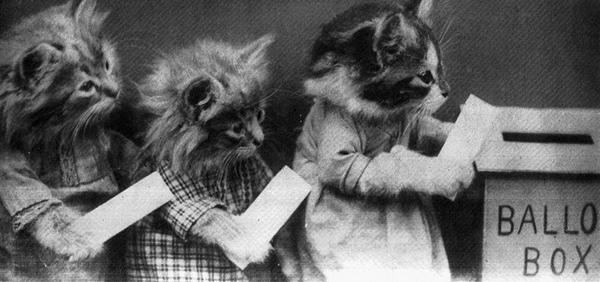
If you want to cast an informal vote, it helps to understand exactly what one is. An informal vote is not some special voting option, nor is it anything to be feared, all it is is a vote that does not indicate clearly the voter’s intentions. For example, a voter putting 1 in all the boxes because they thought they had to rank each flag individually out of five and they liked them all, rather than against each other out of five as the voting requires, would be classed as an informal vote because the voter did not indicate a ‘clear’ winner out of the five designs. Therefore putting an ‘x’ in each box is what will make your protest vote an ‘informal’ one because you have not indicated a clear winner.
However to ensure your vote serves its purpose as a ‘protest’ and not just classed as an informal vote done in error, you will need to write “Keep our current New Zealand flag” (or similar sentence) clearly, legibly and respectfully please on the ballot paper (no swearing, no whining – remember average joe blow citizens read these and they’re just going about their work like anyone else).
The ‘Keep our current New Zealand flag’ sentence is important, you must include it. If politicians were able to pressure a response from the government based on the sheer volumes of informals cast, it could trigger a selection of informal ballot papers being inspected. It is this sentence that will indicate to the reader that the voter deliberately chose not to pick a winner, ie it was intentional and not a mistake and the sentence has stated why.
So to recap, all you need to do to cast an informal vote in protest is to mark ‘x’ in each box and write “Keep our current New Zealand flag” on the ballot paper.
There has been suggestions that an informal vote has no bearing on the result of the first referendum and therefore is pointless, that a person should vote for the least liked flag instead. The thinking been that if that flag won then people would be more likely vote to retain our current flag in the next referendum than if another flag won. This seems like a solid idea as well but it is not something I have looked at in any depth as I prefer the protest option myself. Also to me, it is largely a moot point as the whole purpose of casting an informal vote is not to influence the outcome of the first referendum, rather as noted above, the job of informals is to provide leverage to stop a (possibly) unnecessary, and costly, second referendum from happening.
Whatever way you vote, informal/protest, for your least favoured, or for your favourite in the hope it takes out the incumbent at a future date, I wish you well. Some may not agree, but we do actually live in a democracy in New Zealand and that means any citizen eligible to vote is allowed to cast a vote (or not) in any general election, by-election or referendum as they see fit. That means you can vote for your preferred politician, or party or in this case flag design as you desire. Even if that is a desire to protest.
All the best.
“Except white collar crime, if it’s white collar crime then I’m probably comfortable with it”
Ironic.
Key stating he’s the one standing up for the victims of crime. Like he did when he lied to the 1990’s Serious Fraud Office investigation into failed corporate Equiticorp? Whose execs defrauded 55,000 shareholders of over $400 million? An investigation he was happy to mislead to help out his friend who was facing charges for facilitating $40 odd million of that fraud?
Yeah victims, Key rarely cares about them.
“Except white collar crime, if it’s white collar crime then I’m probably comfortable with it”
“Screwing the scrum” – Cunliffe
Screwing the scrum: the government is screwing people and democracy by underfunding watchdogs and public service.
When I heard Nicky Hagar speak last year, he said the ‘takeaway’ from ‘Dirty Politics’ was not the salacious scandal but the slow erosion of democracy behind it. He asked we seek to create a society where our public service and our public servants, and scientists, and eductors and our health workers were not just free to speak-out against governments but supported to. Transperency in government should know no party colours.
Watch David Cunliffe 04.11.15 – General Debate – Part 8
HT: Dailyblog/Inthehouse
Another Serious Fraud Office investigation worth mentioning: John Key did you lie to the Serious Fraud Office
Another tail chasing hideous policy from a hideous party and a hideous minister
Maybe the person who didn’t want to be in a home surrounded by children was a person with mental health issues who can’t deal with excessive and prolonged noises. Maybe, just maybe, that person saved the ministry from having to later publically explain why some neighbourhood child’s eyeballs were stabbed out with blunt forks by a person who had told the ministry of their m/h limits. Another tail chasing hideous policy from a hideous tail chasing party and minister.
Which of these currency traders turned politicians lied to a 1990’s joint Oz & NZ investigation into corporate fraud?
Which of these currency traders turned politicians lied to a 1990’s joint Australia & New Zealand investigation into corporate fraud?
More info in the links below:
“Where the bloody hell are you?” Could Australia’s media do what New Zealand’s so far hasn’t?
John Key did you lie to the Serious Fraud Office?
People still have power
I do not care that there is currently no legislation that could stop a second flag referendum, it’s an entirely moot and lazy point – up until last week there was no legislation for a fifth flag option either. It is disappointing the reporter who wrote this piece for Radio New Zealand Megan Whelan does not include that information. Fact is legislation can be modified on the fly and under urgency and constantly is, to pretend legislation is somehow static and unchanging is bad form and lends no integrity to the report.
The whole reasoning for informal votes is the hope that sheer volumes of numbers would be enough to put pressure on the government and wider community for support to stop what would by then clearly be a pointless second referendum. People still have power. Am sick of journalists and media organisations hiding their balls and telling us we don’t.
I for one will be making an informal vote first time around.
Tolley the Dog Whistler
Dog whistling headlines this week from the Minister of Social Development about women with children in CYF’s care and having more children. When asked by journalist Katie Bradford today about why she thinks these women keep having children, Tolley’s response was to say they must enjoy sex. Except abusive men know control a woman’s reproductive system and control the woman. Tolley’s dog whistle headlines has nothing to do with addressing a known problems but lifting National’s poll results.
The current flag as sixth option to be added to the 1st flag referendum.
I support this petition 100% and am happy to put my name too it.
My submission supporting this petition:
The argument for the two-step referendum process was that voters needed to see which flag design the current flag would be up against before knowing if they would want to change to it or not. Except people already know whether or not they are going to vote to change the flag. Therefore two-step process is a waste time, money, debate and resources.
Then today parliament made even more of a farce of an already flawed process by effectively rejecting the final four designs when they voted to include Aaron Dustin’s Red Peak in the first of referendums. This action is akin to bringing back a wildcard in a badly run talent contest, except this one is a bizarre parliamentary version of New Zealand’s Flags’ Got Talent and it’s crap, and it’s costing taxpayers $26 million dollars.
The only honest course of action going forward is for the government to hold just one referendum which sees the current flag going head-to-head with the five alternatives.
One referendum, one vote, one flag, one time.
Flangst: a feeling of deep anxiety or dread
flangst
/flangst/
noun
a feeling of deep anxiety or dread, typically an unfocused one about changing New Zealand’s flag or the state of the flag change process in general.
“not having a Yes/No vote in the first referendum has caused unnecessary angst amongst voters, especially those who do not want to change”
synonyms: anxiety, fear, dread, apprehension, worry, perturbation, foreboding, trepidation, malaise, distress, disquiet, disquietude, unease, uneasiness; rare inquietude
Does the prime minister stand by all his statements?
It looks like today’s questions were a coordinated effort by opposition parties to make the prime minister answer questions and not have him fob them off to someone else or deny he has any responsibility to answer it. I thought Duncan Garner was a political journalist once, so surely he would have known this? Or is this fobbing off questions a new thing, unique to Team Key?
When MPs ask Key if he “stands by all his statements” he has to answer questions that are put to him and not pass it on to one of his Ministers. If they simply asked him about a particular subject, he can blow it off and not answer it by saying he has no responsibility for that portfolio, thereby wasting a valuable question. The government does this so the prime minister is kept from having to answer tough questions and/or be associated with dodgy, useless, inept, corrupt, etc, government ministers and departments.
For example you could ask Key about the state of operations at a particular DHB, he could claim he has no ‘ministerial responsibility for that’ and pass the question to his Minister of Health to answer. Or he might have made the claim a health department is operating very well, but when it’s proven it isn’t, he can simply deny he has any knowledge or responsibility for it. Whereas asking him if he “stands by all this statements” (usually it is only in relation to a particular topic) but to make the point the opposition parties gave him no wiggle room today by asking if he stood by all his statements since becoming prime minister, means he has to answer, and truthfully, MPs including the PM can not to lie to or mislead parliament. It’s probably the worse thing a politician can do.
Passing off questions has been happening a lot with this government and it frustrates democracy. A country needs a strong opposition (regardless of your politics) to hold governments to account but if they are hindered in the very house where they are meant to get answers for the public, from the very ministers or a prime minister who serve us, then there’s not much an opposition can be, but inept – and that doesn’t do anyone any favours. I applaud what the parties did to day. More of the same please.
Lord Ashcroft & his porky telling Prime Minister BFFs
It appears the United Kingdom’s David Cameron and New Zealand’s John Key have more than friendship with self-made businessman Lord Michael Ashcroft and prime ministerial office in common. It appears they are both world class liars, each willing to mislead their voting public to gain office.
Yesterday via an explosive extract of his soon to be published book ‘Call Me Dave’, Ashcroft makes the claim Cameron had lied to media about his knowledge of Ashcroft’s non-dom (non domiciled) tax status. I don’t know enough about UK politics or indeed it’s tax system to comment, other than to say yesterday’s revelations show ‘Lord Cashcroft’ (as he was labelled by UK media) is not above greasing the party palms of would-be prime ministers in return for favours. Ergo is there something New Zealand voters need to be concerned about? Apart from our current prime minister Key having no issues with lying to government investigations that is.
I’ve written extensively on John Key lying in 1991 to New Zealand’s Serious Fraud Office investigation into failed high-flying corporate Equiticorp. This inquiry was run in con-junction with Australia’s National Crime Authority who were investigating finance giant Elders IXL, a money lender that had extensive dealings with the New Zealand company.
Was it Ashcroft’s deep pockets combined with Crosby-Textor’s secretive spin that allowed these men to so confidentially mislead and beguile their way past voters’ hearts and into office? If so, how is that democracy?
Love this brilliant, bold, determined woman.
Love this brilliant, bold, determined woman. Detention centers are vile, inhumane cattle yards and have no place in so called democratic civil societies.
Melbourne woman taking on Transfield over children in detention
September 18, 2015 – 10:44PM
This is the Melbourne woman who has corporate giant Transfield Services extremely nervous as it negotiates a new contract to run Australia’s offshore immigration detention centres.
Transfield is preparing to sign a multibillion-dollar, five-year deal to continue operating the Manus Island and Nauru camps on behalf of the federal government, and Shen Narayanasamy wants to put the release of children at the forefront of the company’s mind.
“People might be swayed by the Stop the Boats rhetoric, but they draw the line at child abuse.”
And Transfield is taking her and the newly formed group she helped create, No Business In Abuse (NBIA), very seriously.
He aha te mea nui o te ao? He tangata! He tangata! He tangata!
SCOUT EXCLUSIVE: Mike Hosking embraces his inner cleaning lady
Newly launched entertainment and celebrity site SCOUT provided it’s audience with a much lauded first day exclusive on Monday which turned out to be little more than footage of NewstalkZB radio host and TVNZ’s Seven Sharp presenter Mike Hosking vacuuming his Ferrari. Yes, you read it right. New Zealand’s highest paid broadcaster vacuuming his car is a not just celebrity news to SCOUT, the knowledge is so titillating it needs to be delivered to us an exclusive. If this exclusive wasn’t such vacuous tripe you’d be forgiven for thinking Rachel Glucina and her SCOUT co-owners Mediaworks had taken out shares in a vacuuming cleaning company and were about to launch nightly SCOUT TV infomercials for their very own oh so sucky-motor.
However its not the mindblowing numbness of SCOUT’s very first exclusive that is the point of this post, rather it’s the sexism that accompanied it. Glucina as author of this dust bunny drivel, needs to lift her game if she hopes SCOUT to have any longevity. For the record, saying Hosking is not above ’embracing his inner cleaning lady’ is sexist and unnecessary. Men actually do clean and for the most part the majority of them don’t need to lower themselves from the lofty status of male to the lowly status of female to pick up a hoover.
If this is the level of narrative and content SCOUT hopes to provide, then I can’t wait for it’s close-up of Key the Elder trimming his nose hairs and Glucina’s exclusive interviews with each of his nose hairs for their unique take on the inner workings of Prime Minister John.
“Where the bloody hell are you?” Could Australia’s media do what New Zealand’s so far hasn’t?
Would Australia’s political pundits be as ready to embrace their brand new prime minister Malcolm Turnbull’s unflinching admiration of New Zealand prime minister John Key if they were aware that the subject of Turnbull’s affection had mislead an early 90’s investigation by their National Crime Authority (NCA) into the now infamous ‘H-Fee’ transactions? So what do you think? Would the tran-Tasman bromance still be welcomed despite it? Or would Australia’s journalists and commentators not be distracted by the flush of first love and actually call for the New Zealand prime minister to explain himself? Could Australia’s media do what New Zealand’s so far hasn’t?
When Key’s 1991 statement to the H-Fee investigations surfaced a week before he was elected prime minister in November 2008, the document was largely accepted as ‘truth’ – even to the point that one highly regarded New Zealand journalist used the statement as ‘evidence’ of Key telling the ‘truth’ about one of his more infamous pre-PM brain-fades. In 2007 Key had tried to front foot questions by New Zealand Labour party politicians about his involvement in the H-Fee investigation, and in doing so had told a journalist that the ‘Labour hounds had nothing on him because he had left EMF in 1987 long before any of the H-Fees we’re decided’. When his statement came to light and it showed Key had actually told investigators he had left EMF in 1988, not 1987 as he’d told this reporter, Key confidently reassured waiting media that what he told investigators in 1991 was the real year and if they were to hear anything to the contrary, then it was nothing but a left-wing smear campaign by a desperate Helen Clark and her then incumbent Labour government colleagues.
At the same time as Australia’s (now defunct) NCA were investigating the complex H-Fee foreign exchange movements between Australia’s corporate high-flier Elders IXL and New Zealand’s own Equiticorp, New Zealand’s newly established Serious Fraud Office (SFO) were trying to unravel this and many other dodgy movements of money into the hands of Equiticorp founder Alan Hawkins. The two investigating bodies worked closely together sharing information, running separate prosecutions within their own jurisdictions, with the NCA bringing a case in Australia against some of the offending parties over there and in 1992 in New Zealand the SFO’s brought successful charges against Hawkins. He was subsequently sentenced to six years in prison.
Key became involved in the H-Fee investigations when an ex-colleague of his Paul Richards, now head of forex at UBS in United States, was facing fraud charges for his part in one of the transactions. He had helped to facilitate some of the foreign exchange movements necessary to hide these transactions while working for Elders IXL’s New Zealand based subsidiary Elders Merchant Finance (EMF) in Wellington in 1988. Richards was only ever a bit player and eventually was given immunity from charges in return for giving evidence for the NCA’s prosecution across the ditch. Funnily enough a defense lawyer in that court case alleged Richards and Key’s statements to the investigation we’re completely made up, nothing but utter fabrication. What did they know that we don’t?
Richards who was first interviewed in November 1990, told investigators he could supposedly recall an event from 31 August 1988 because he and an ex-colleague ‘John Key’ had had a lunch that day. He could recall the exact date of the lunch because it allegedly marked his colleague’s last day with the firm. This date was at odds with the evidence of Richards’ boss Peter Camm and Elders IXL executive from Australia, Ken Jarrett, both of whom were also under investigation. Allegedly Richard’s was called away from the ‘lunch’ to meet with these two men. Jarrett had supposedly flown to New Zealand from Australia that morning.
In May 1991 Key was asked to corroborate Richards’ evidence. He told investigators he had given notice on 24 June 1988 and then two months later on 31 August the two colleagues were celebrating his final day, he was leaving EMF to head a newly established forex exchange department at rival finance company Bankers Trust. He confirmed Richards’ evidence about their lunch including how Richards had received a call and had to return immediately to the office. About 45 minutes later Richards allegedly returned, a little shaken but he told Key he could not go into detail other than to say he had just had a very strange meeting with his two co-accused. Allegedly the men continued their lunch and supposedly never discussed the strange turn of events again.
Now at Bankers Trust we were told Key worked with infamous American currency raider Andrew Krieger who was based at the company’s New York branch at the time. This relationship we we’re told was highly lucrative for the New Zealand branch and had soon turned the Auckland dealing room into the number one forex dealing room in the country. Reports about the success of this relationship worked to cement the then Leader of the Opposition’s backstory as a ‘state house kid made good’, a currency trader of some merit, a man at the top of his game, right in the thick of it with the world’s most notorious and infamous best. Key’s ex boss Gavin Walker, now chair of the Board of Guardians of the New Zealand Superfund, told media Key was responsible for the Auckland branch’s relationship with Krieger, it was in his job description to look after him and that as far as Walker was aware Key knew everything that Kreiger was executing across the local branch’s trading desk. Key himself told media he would never forget his first phone call with Krieger as the currency legend asked him about New Zealand’s GDP and it’s monetary supply.
Except Key working with Krieger means there is no time in 1988 that Key could have been working with Richards at EMF – it is simply not possible. Kreiger resigned from Bankers Trust on 23 February 1988 – some six months before the 31 August date Richards had told investigators, and later corroborated by Key, as been Key’s last day before he joined Bankers Trust in Auckland. Krieger’s resignation is well documented. He had disputed the amount of bonus he was due from his 1987 trades and promptly resigned leaving the company within a matter of weeks. Upon leaving Krieger spent one month on holiday before returning to the forex markets with another company. By June 1988 though he was disillusioned with currency trading and left the currency markets altogether, not only the markets but America itself, to study Sanskrit in India. He did not return to the currency markets until sometime in 1990. Even if Key’s statement to the H-Fee investigation is believed, it does not explain how he could trade millions upon millions of dollars of currency with someone that helped turn his trading room into the best in the country, when that person had left the currency markets entirely a couple of months earlier?
Did Key lie to the H-Fee investigations? More than likely. Will Aussie commentators think less of him for it? Hopefully. Not sure if Prime Minister Turnbull will, but no one will ever know unless the New Zealand media start asking Key to explain himself. Or could Australia’s media do what New Zealand’s media so far hasn’t?
In his book ‘Dirty Collars’ ex SFO head Charles Sturt says this of the vast powers bestowed upon his department,
“while a person may be compelled to answer questions, these answers may only be used in evidence if the accused subsequently gives evidence inconsistent with their previous statements”
So c’mon on journos, “where the bloody hell are you?”
_____________
2008 6 March ALT TV: Oliver Driver (Lets Be Frank) interview where Key talks about working with Andrew Krieger at Bankers Trust
2008 30 October Radio New Zealand: Kathryn Ryan(Nine to Noon) interviews John Key about H-Fee a week before 2008 General Election
Legal scholar & author Frank Partnoy interviewed Andrew Krieger for the book “Infectious Greed: How Deceit and Risk Corrupted the Financial Markets” and dedicated a chapter to him. The intro & chapter featuring Krieger ‘Patient Zero’ can be read free on Amazon Kindle +PC. Click “Read first chapter free” to view.
Please share this page with others, thank you.
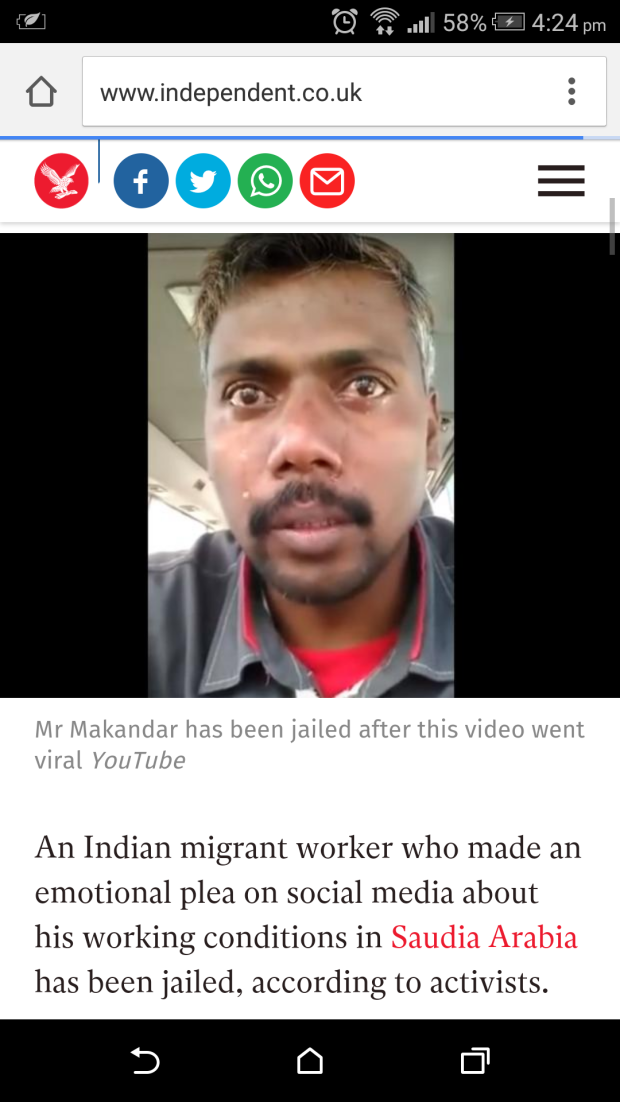
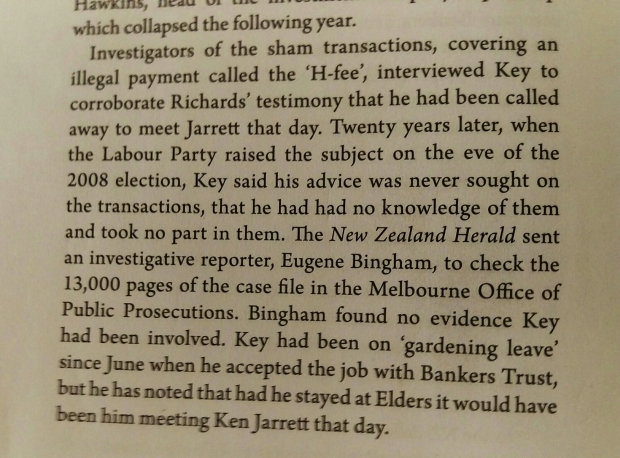








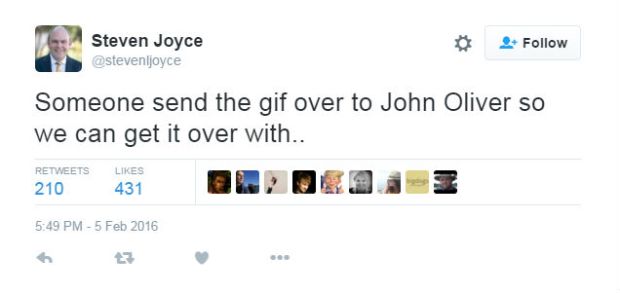

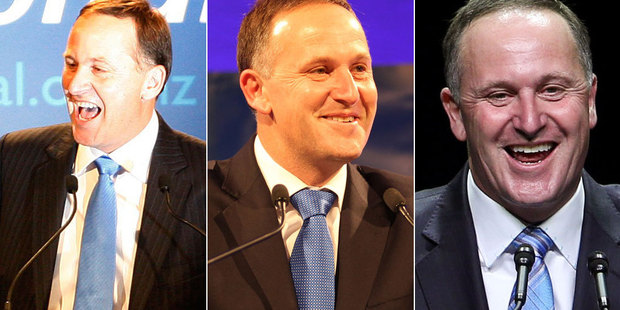

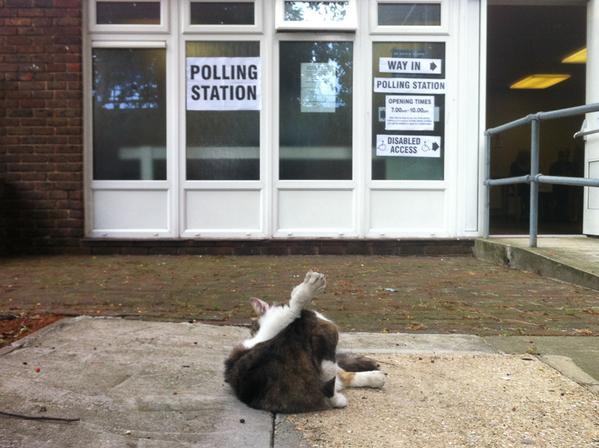

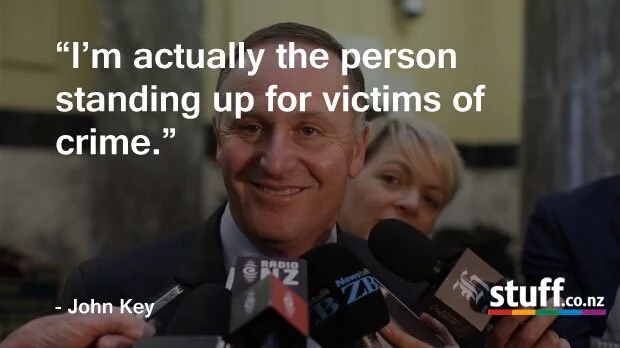

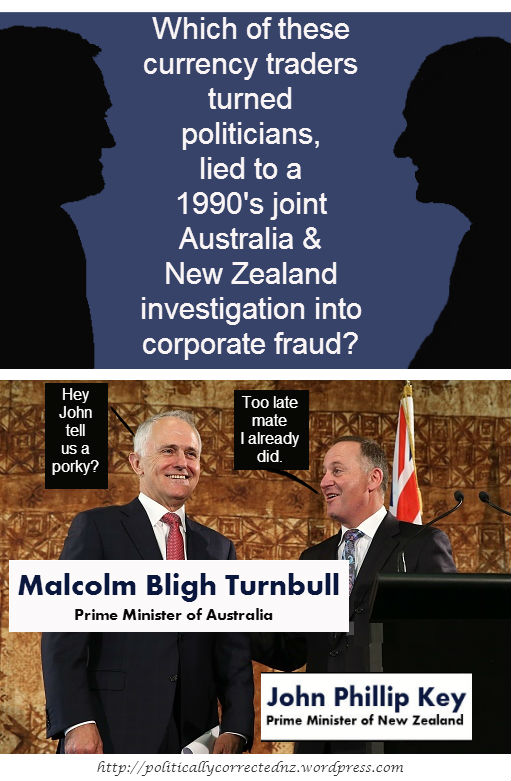
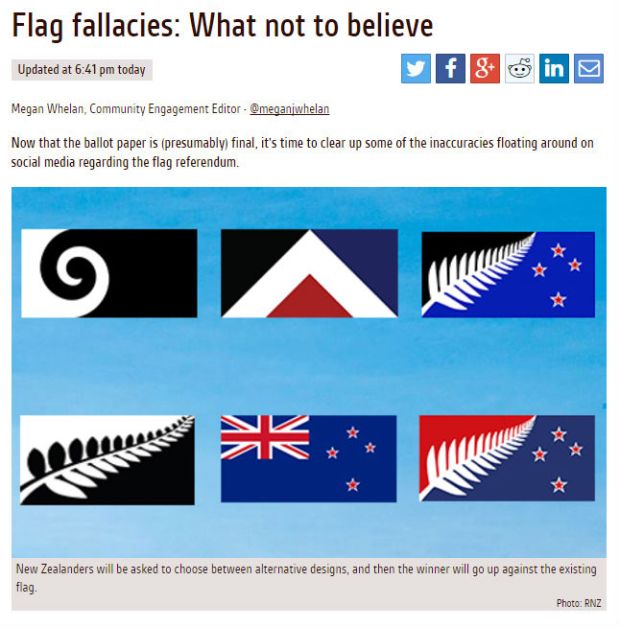
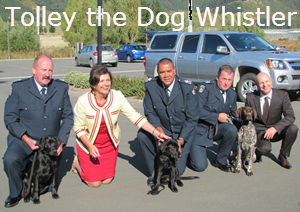
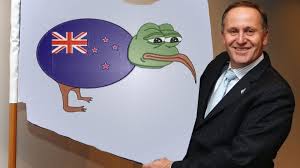
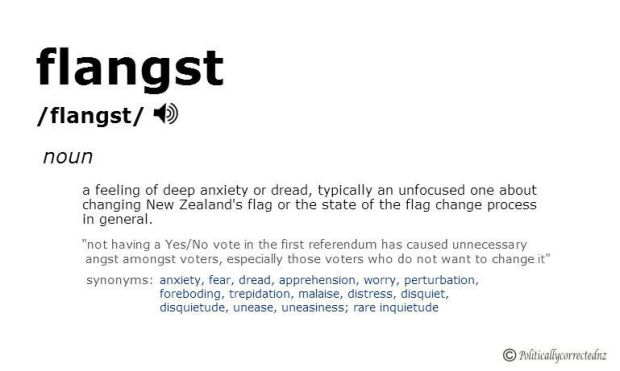
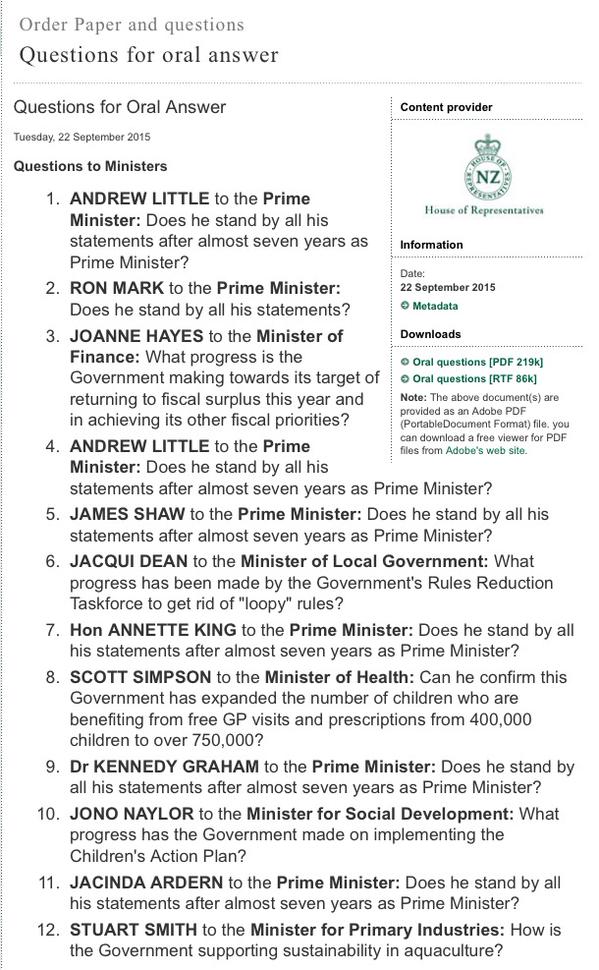
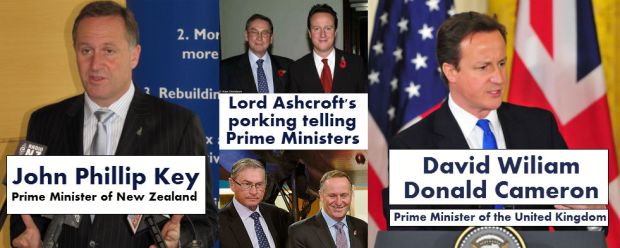
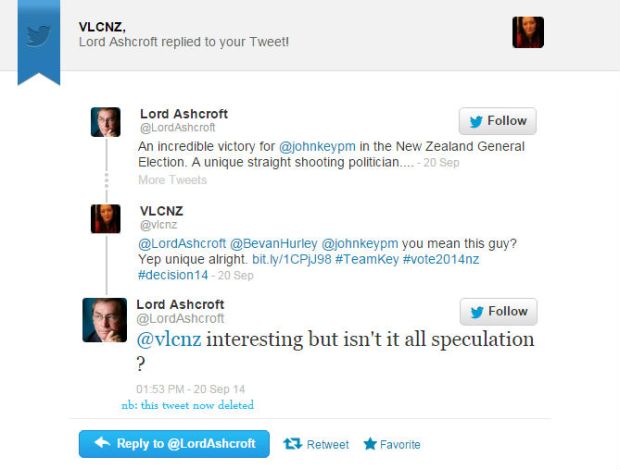
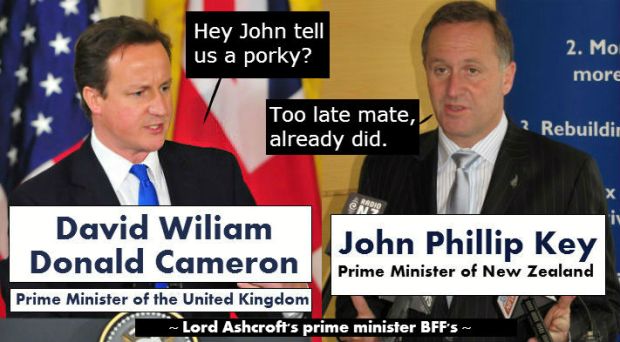
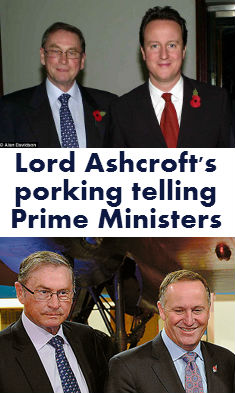
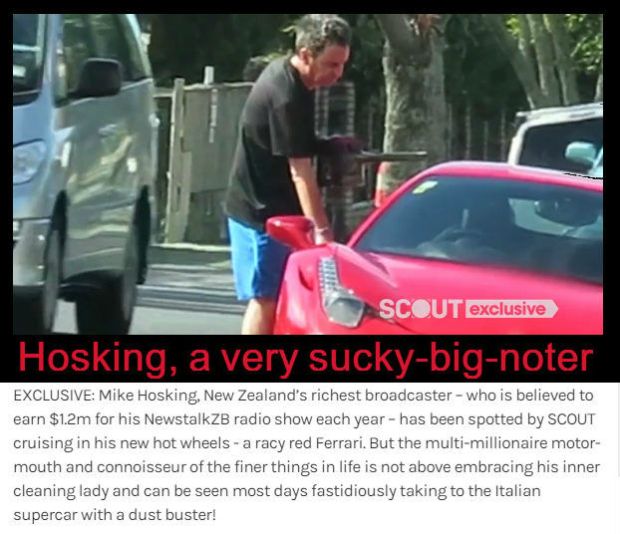
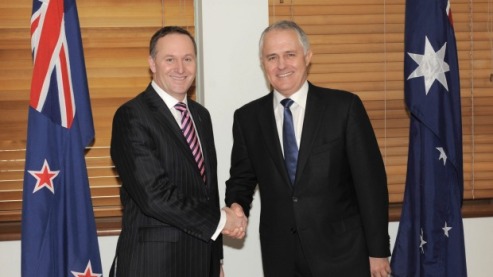
Recent Comments